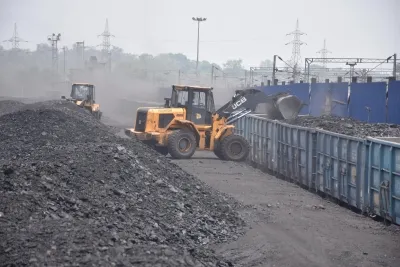How Will GST Rationalisation Impact Coal Producers and Consumers?

Synopsis
Key Takeaways
- The GST council has abolished the compensation cess on coal.
- The GST rate on coal has risen from 5% to 18%.
- The overall tax burden on coal consumers is expected to decrease.
- The reforms aim to create a balanced tax structure for coal producers.
- Tax incidence has been standardized across different coal grades.
New Delhi, Sep 11 (NationPress) The Goods and Services Tax (GST) council has implemented major transformations in the taxation framework of the Coal industry by abolishing the compensation cess, as announced by the Ministry of Coal on Thursday.
Previously, coal was subject to a 5 percent GST alongside a compensation cess of Rs 400 per ton. The Council has now advised the elimination of the GST Compensation cess and an increase in the GST rate on coal from 5 percent to 18 percent.
According to the ministry, “The new reforms reduce the overall tax on coal grades G6 to G17, which ranges from Rs 13.40 per ton to Rs 329.61 per ton. The average reduction for the power sector is Rs 260 per ton, which will lower the cost of generation by 17 to 18 paise/kWh.
These reforms will also assist in rationalizing the tax burden on coal in relation to its pricing.
Previously, a uniform rate of Rs 400 per tonne was levied as GST compensation cess without accounting for coal quality, which disproportionately affected lower-quality and lower-priced coal.
For instance, G-11 non-coking coal, which constitutes the majority of coal produced by Coal India Limited, faced a tax incidence of approximately 65.85 percent compared to 35.64 percent for G2 coal.
With the cess abolished, tax incidence across all coal categories has been rationalized to a uniform rate of 39.81 percent.
Although the GST rates have increased from 5 percent to 18 percent, the reforms will result in a lower overall tax incidence for the final consumer due to the cancellation of the GST compensation cess.
Moreover, the cessation of the cess, rationalization of duties, and correction of the inverted structure will enhance liquidity, eliminate distortions, and avert significant accounting losses for coal producers, the ministry added.
The decisions made by the GST council signify a well-balanced reform that benefits both coal producers and consumers alike.










